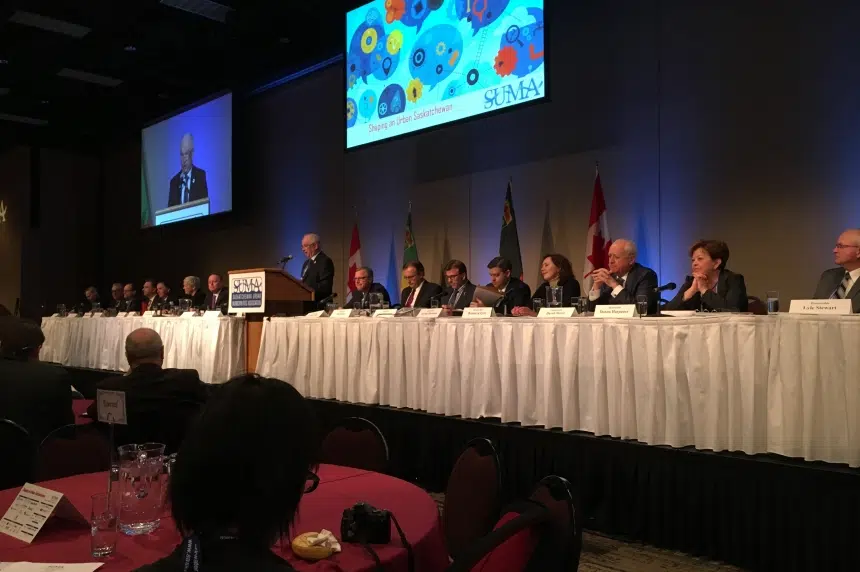Saskatchewan’s urban mayors and councillors got a chance to question the provincial government on Wednesday.
Premier Brad Wall and his cabinet were in Saskatoo’s TCU place for the bear pit session at the Saskatchewan Urban Municipalities Association’s annual convention.
The session has become an annual tradition to wrap up the convention. This year saw many urban representatives express concerns about the amount of money flowing from the province.
The convention kicked off with a warning from Wall that cities will see a dip in the money they get from the PST, as a slower economy has seen the tax bring in less money.
Saskatoon mayor Charlie Clark said it won’t be the first year that pot of cash has shrunk, but it’s part of a formula that sees more money for cities in good times and less during downturns.
“(We saw) $2.5 million less in funding this year than last year, because of the drop in PST (revenue). And we’re not complaining about that. That was part of the agreement,” he said.
But Clark said there is a limit to how far cities can reasonably be expected to cut without severely compromising services — given that they are required by law to draft balanced budgets every year.
“If we’re going to solve the economic challenges of this province, we need to make sure that in the urban areas, we have the resources,” Clark said.
Other delegates echoed Clark’s concern. Some asked Saskatchewan Finance Minister Kevin Doherty if the province was considering raising the PST rate.
Doherty said he was keeping all options open, including the possibility of bumping the PST up from five per cent to six.
“Everything is on the table. Both on the revenue side and the expenditure side,” he said.
Doherty told the delegates any tax increases would be subject to an economic impact assessment before going into effect.
-With files from 650 CKOM’s JT Marshall







